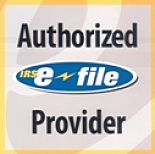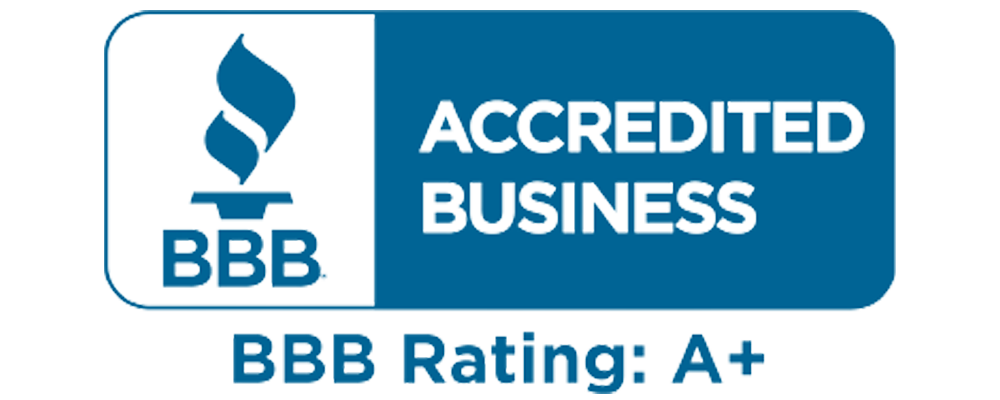Inflation Reduction Act of 2022
On August 16, 2022, President Biden signed the Inflation Reduction Act of 2022 (IRA) H.R. 5376 into law. The tax, climate, and healthcare measure includes several key parts of Biden’s agenda. Below are some of the key tax provisions:
Electric Vehicle Tax Credit (Clean Vehicle Credit)
Internal Revenue Code Section 30D
Beginning in year 2023, the new law extends and modifies the existing "Qualified Plug-In Electric Drive Motor Vehicle Credit" with a Clean Vehicle Credit up to $7,500.
The refundable $7,500 credit will have two components of $3,750. Vehicles meeting one but not both of the components will be limited to a $3,750 credit.
-
The first component will be met when a certain percentage of the critical minerals in the battery are extracted or processed in the United States, a country with a United States free trade agreement or recycled in North America.
-
The second component will be met when a certain percentage of the battery is manufactured or assembled in North America.
Other Changes to the Clean Vehicle Credit
-
The new credit will eliminate the current statutory limit of 200,000 vehicles per manufacturer,
-
The credit is allowed only if the Manufacturer's Suggested Retail Price (MSRP) is less than $55,000 ($80,000 for vans and SUVs),
-
Income Limitations - The taxpayer's modified adjusted gross income (MAGI) must be less than $300,000 if married filing jointly, $225,000 if head of household and $150,000 if single,
-
The credit will apply to vehicles placed in service between January 1, 2023 and December 31, 2032,
-
Beginning in year 2024, a mechanism will allow car buyers to transfer the credit to the dealer at the point of sale so it can directly reduce the purchase price rather than claiming the tax credit on your annual federal income tax return.
More details can be found of the U.S. Department of Energy website.
New Credit for Previously Owned Electric Vehicles
Internal Revenue Code Section 25E
Beginning in year 2023, the new law will allow a vehicle tax credit equal to the lesser of $4,000 or 30 percent of the sale price for qualifying used electric vehicles that have been in service for at least two years and sold through a licensed dealer. The credit is only valid for the first time a vehicle is being resold from new.
The sale price of the vehicle cannot be greater than $25,000. There are also income limitations to qualify for the credit. A taxpayer's modified adjusted gross income (MAGI) must be less than $150,000 if married filing jointly, $112,500 if head of household and $75,000 if single.
A person who is claimed as a dependent on another person's tax return cannot claim this credit.
The credit will apply to vehicles purchased between January 1, 2023 and December 31, 2032.
Nonbusiness Energy Property Credit
(Energy Efficient Home Improvement Credit)
Internal Revenue Code Section 25C
For year 2022, the nonbusiness energy credit which has a $500 lifetime maximum has been reinstated. It had expired on December 31, 2021.
Beginning with year 2023, the new law modifies, expands and extends the nonbusiness energy property credit for certain energy-efficient home improvements, through year 2032 by increasing the credit from 10 percent to 30 percent. It also renames the credit to "Energy Efficient Home Improvement Credit."
Qualified energy property that is eligible for the credit covers a range of products, including doors, windows, skylights, insulation, water heaters, heat pumps, central air conditioners, hot water boilers, biomass stoves, oil furnaces, air sealing materials and systems, costs of home energy audits, and electrical panels installed to enable qualified improvements, with specific efficiency requirements for each upgrade. Installation costs now qualify.
Metal roofs and shingle roofs with pigmented coatings to help reduce heat gain are no longer eligible for the credit.
The lifetime cap on the credit of $500 is replaced with an $1,200 annual credit limitation, except in the case of heat pumps and biomass stoves, for which the credit may be up to $2,000. Homeowners can only receive a credit of up to $600 for windows or skylights; $250 for one door; or $500 for multiple doors. They can also receive up to $150 for a home energy study. Other energy property such as insulation and water heaters are eligible for a credit up to $600 per unit.
Beginning in year 2025, there is also new mandated reporting requirements that manufacturers and taxpayers must label and report, respectively, a product identification number associated with the energy property in order to claim the credit.
The credit applies only to homes located in the United States that are used as a residence. This can be a primary residence or even a second home.
Residential Clean Energy
Credit
Internal Revenue Code Section 25D
Beginning with year 2022, the new law modifies the credit from 26% to 30% for qualifying clean energy property such as solar electric, solar water heating, geothermal heat pumps, small wind turbines, fuel cell property, and biomass fuel property through year 2032. In year 2033, the credit is reduced to 26% and in year 2034, the credit is reduced to 22%.
Qualified battery storage technology with a capacity of at least 3 kilowatt hours is now eligible for the energy credit.
Other Energy Incentives
The new law also includes $9 billion for home energy rebate programs for low-income households to make their homes more energy efficient and $1 billion in grants for affordable housing energy upgrades.
Creation of a 15% Corporate Minimum Tax Rate
Corporations will have a 15% minimum corporate tax on “book income” if they average more than $1 billion in revenue a year.
Stock Buybacks By Corporations
Beginning in tax year 2023, corporations will be subject to a 1% excise tax on the fair market value (FMV) of any stock repurchase in a tax year by a publicly traded U.S. corporation, including any subsidiary that has 50% or more of its stock owned by a corporation. The following stock repurchases are EXEMPT from the excise tax:
-
Repurchases less than $1 million,
-
Repurchases that are contributed to an employer-sponsored retirement plan, stock ownership plan, or similar plan,
-
Repurchases which are part of a reorganization with no gain or loss recognized,
-
Repurchases made by a regulated investment company or a real estate investment trust,
-
Repurchases that are treated as a dividend.
Affordable Care Act Premium Subsidies
The new law
extends through year 2025 the American Rescue Plan Act provision which
allows taxpayers with household income above 400% of the federal poverty
level (FPL) to potentially obtain premium assistance (subsidies) when
purchasing Marketplace health insurance
The new law directs the U.S. government to negotiate with drugmakers for lower prices on certain prescription drugs. Beginning in year 2025, Medicare Part D recipients will have a $2,000 cap on annual out-of-pocket prescription drug costs.
What's Included in the New Law for the IRS?
The IRS will receive $80 billion in funding through the Inflation Reduction Act. The funding will mainly be used to enhance enforcement, improve customer service, and modernize technology. The Act appropriates the following amounts for the IRS:
-
$45.6 billion for tax enforcement activities, including legal and litigation support, criminal investigations, and digital asset monitoring and compliance activities,
-
$25.3 billion for operations support, including rent payments, facilities services, other IRS-wide administration activities, research and statistics of income, and information technology development,
-
$4.75 billion for business systems modernization to provide a more personalized customer service,
-
$3.18 billion for taxpayer services, including pre-filing assistance and education, filing and account services, and taxpayer advocacy services.
Amounts will remain available through fiscal year 2031. The IRS currently has around 78,000 employees. The IRS plans on hiring thousands of employees in the coming years with the additional funding.









